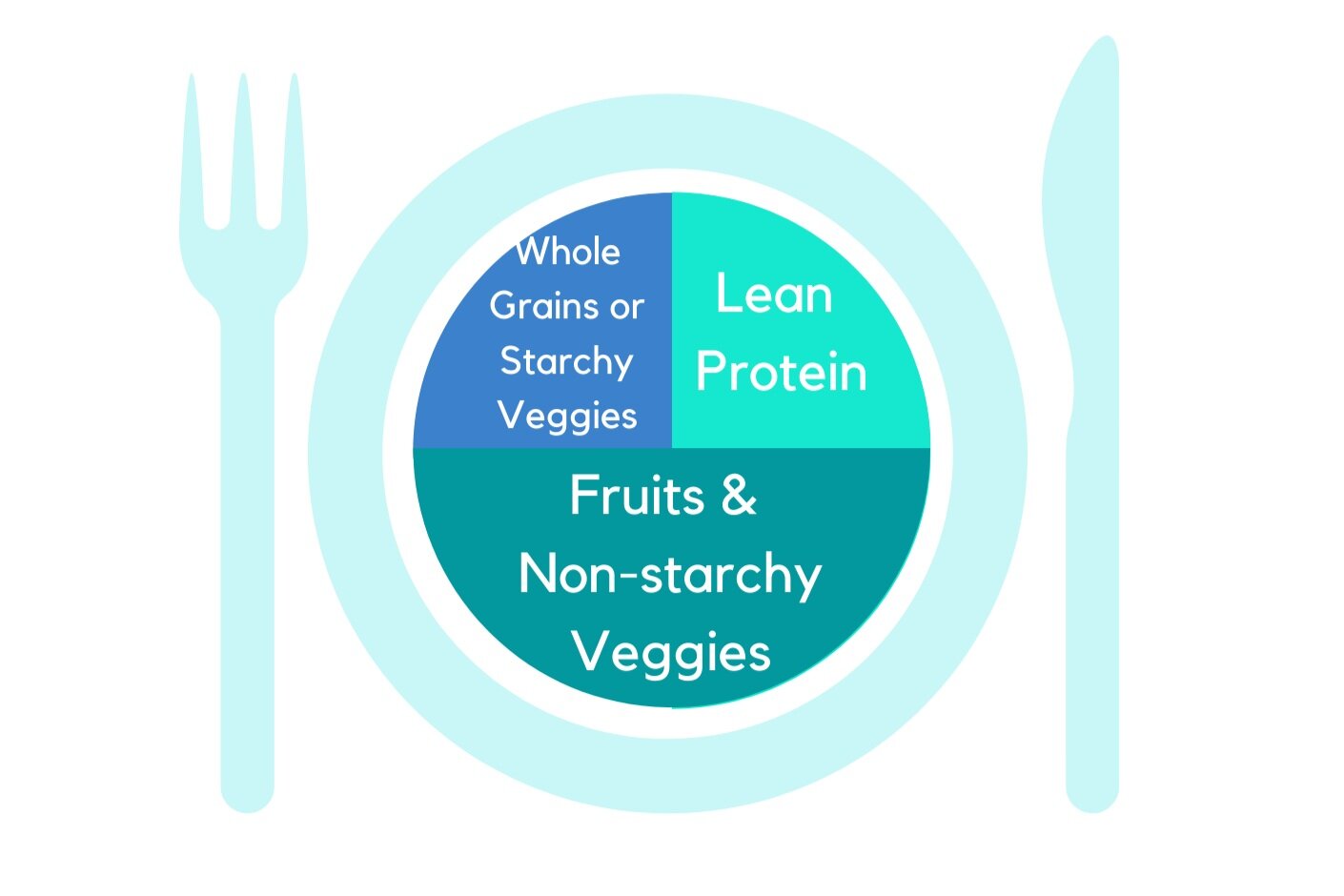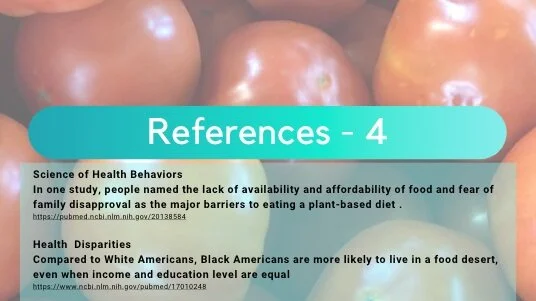4 Components of a Well-Balanced Thanksgiving Meal and Leftovers
What Does a Well-Balanced Holiday Meal (and Its Leftovers) Look Like?
The 8 recipes in our Share & Savor course can be mixed and matched in so many ways to build a well-balanced meals from the leftovers of your healthy thanksgiving recipes.

At Byte Wellness, we use a plant-based adaptation of the USDA's MyPlate to explain how to build a well-balanced meal. Keep reading to see what that means.
**Remember, this isn’t medical advice. If you have chronic conditions like type 2 diabetes, you should always check with your healthcare providers (doctor and nutritionist) before making major changes to your eating habits.**
Fruits & Non-starchy Veggies = 1/2 plate
Make sure fruits and non-starchy veggies take up at least 1 half of your plate (or bowl) at every meal.
Non-starchy veggies include celery, broccoli, bell peppers, leafy greens, green beans etc.
If you used Chef Araba's Tropics Blend Smoothie to build your energizing breakfast on Thanksgiving morning, you've already got more than half a plate of fruit and veggies (spinach and mangoes). Keep that ratio in mind when you add starches and protein to convert it into a smoothie bowl.
Want to take a deeper dive into the link between your habits and your health? Click here to become a Byte Wellness Healing Member and get daily wellness text messages and videos with the wellness info you’ll need to manage your conditions.
Starches (Whole Grains or Starchy Veggies) = 1/4 plate
Starting with Chef Araba's Tomato and Avocado Salad or her Seasoned Veggies, add her Fluffy Quinoa recipe or her Sweet Potato Wedges. Notice the use of “or” here. Both quinoa (a whole grain) and potatoes (starchy veggies) are considered starches. That means you can follow the Balanced Plate plan by eating one serving (about 1 cup) of quinoa or one serving of sweet potatoes (about 1 medium potato or 1/2 cup), but not 1 serving of each!
If you have a hankering for both the nutty quinoa flavor and the comforting gooeyness of a sweet potato, you can satisfy both by combining half a serving of each: 1/2 cup of quinoa and 1/24cup of sweet potatoes. These serving sizes might not sound like enough to satiate your hunger, but you’d be surprised how filling 1 cup of starch can be when you take your time and savor each bite.
We’ve been talking about absolute serving sizes, but remember that the proportions matter, too. According to the Balanced Plate plan the total amount of the starch on your plate should fill only 1/4 of the plate. Basically, make sure your salad is at least twice as big as your starch.
Lean Protein = 1/4 plate
Just because you're eating a plant-based meal doesn't mean you have to miss out on the 1/4 of your plate that's protein. You can choose a variety of plant-based proteins like black-eyed peas or lentils. You can even round out your essential amino acids with whole grains that contain protein. Kill two birds by choosing protein-heavy whole grains like quinoa or teff.
If your well-balanced Thanksgiving meal includes some meat, (there’s a reason it’s known as “Turkey Day”), count your meat as your protein. According to the MyPlate guidelines, all your proteins (from meat and plant-sources) should fill only 1 quarter of your plate. Remember that “lean” meat (turkey, chicken) has less saturated fat than fattier “red” meat (i.e beef), which makes lean meat healthier for your heart.
For more recipes that bring out the best parts of foods, join our Share & Savor wholesome eating course… It’s discounted by 25% extended through cyber Monday, so don’t miss out!
If you’re looking to figure out how to build your own wellness formula, you’re in the right place. But, unlike the “wellness formula” you’ll find at Walmart, Whole Foods or GNC…
If you’re looking to figure out how to build your own wellness formula, you’re in the right place. But, unlike the “wellness formula” you’ll find at Walmart, Whole Foods or GNC…
We eat lots of starch in junk food, but it can be part of a healthy plant-based diet, too…
Yesterday, we talked about sugar. Next up is fiber. Know how hard it is to chew celery or an apple? That stiffness is fiber. It’s in fruits, veggies…
Sugar is one of the 3 types of carbohydrates in your daily diet. Unlike starch and fiber, sugar is not one of the carbs your body needs.










![#PWW Recording: Intro to the ISMS-to-ILLNESS Pathway [Video]](https://images.squarespace-cdn.com/content/v1/5c7316af11f7846b135b9fe7/1710538224327-T0IJZP00V691VNMA0QHV/Youtube+Thumbnail.png)
![MLK, Health Justice, and the LA Fires (Happy MLK Day) [Self-Love Letter]](https://images.squarespace-cdn.com/content/v1/5c7316af11f7846b135b9fe7/1737426504384-QZZY5CZUERDA7EGFPRIG/unsplash-image-39rGV19A6A0.jpg)



Sugar is one of the 3 types of carbohydrates in your daily diet. Unlike starch and fiber, sugar is not one of the carbs your body needs.